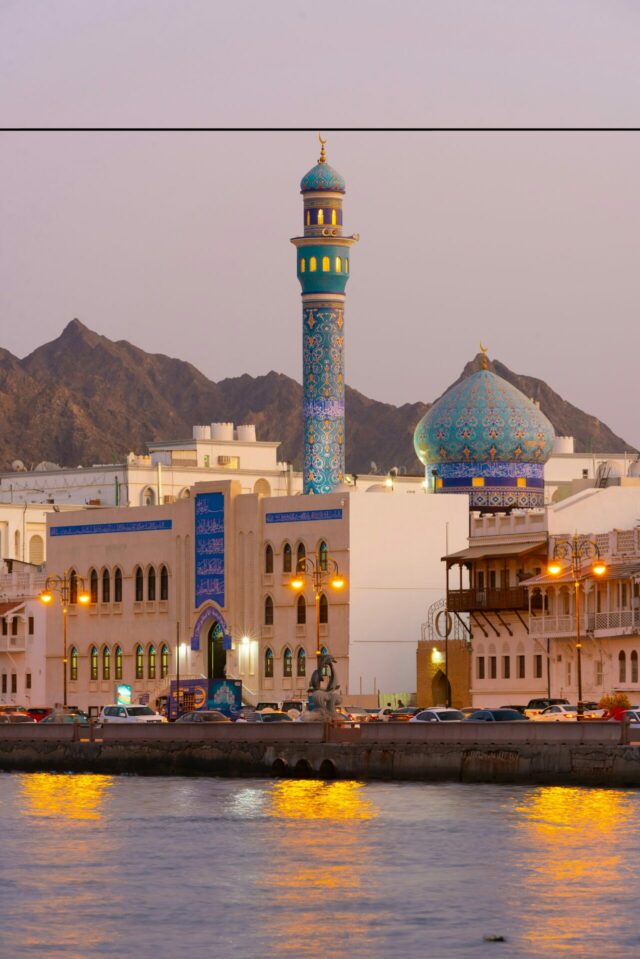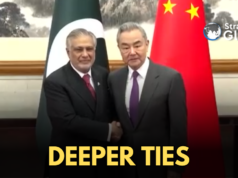Oman, “Islamic State”, India
The ‘Islamic State’ terrorist group has claimed responsibility for an attack in Muscat, Oman. The group stated that three of its “suicide attackers” fired on worshippers at a mosque. And engaged in gunfire with Omani security forces until morning. The group also posted a video of the attack on its Telegram site. At least nine people including three attackers were killed. Four Pakistanis, an Indian and a police officer were among those who died. The Oman police said 28 people of different nationalities were wounded, including security personnel.
Earlier, the Indian Embassy acknowledged:
Following the shooting incident reported in Muscat city on 15 July, Foreign Ministry of Sultanate of Oman has informed that one Indian national has lost his life & another is injured. Embassy offers its sincere condolences & stands ready to offer all assistance to the families.
— India in Oman (Embassy of India, Muscat) (@Indemb_Muscat) July 16, 2024
Wealthy, Sunni Muslim-dominated Gulf states, like Oman, which typically enjoy security and stability, rarely experience violence of this nature. This attack has raised fears that the ‘Islamic State’, which has operated in the shadows since a U.S.-led coalition largely crushed it in 2017, may be attempting a comeback in new territory.
Police have not confirmed whether they have identified a motive for the attack or made any arrests. Omani authorities have also not disclosed the identity of the attackers.
A local source identified the mosque as Imam Ali mosque, a Shia place of worship in Ibadi-ruled Oman. The country hosts a small but influential Shia minority.
The Pakistani foreign ministry described the incident as a “terrorist” attack and reported that 30 survivors were receiving treatment in hospitals.
The ‘Islamic State’ claimed responsibility for the attack, stating its fighters targeted a gathering of Shia Muslims observing their annual rituals.
Monday evening marked the beginning of Ashura, an annual period of mourning during which Shia Muslims commemorate the 7th-century death of Hussein, a grandson of the Prophet Mohammad. The observance of Ashura has occasionally sparked sectarian tensions between Sunni and Shia Muslims in some countries, though this has not typically occurred in Oman, where the Ibadi sect promotes tolerance.
Most Omanis adhere to Sunni Islam or to the Ibadi faith, which shares many similarities with mainstream Sunni Islam.
“This is a very unprecedented event. We have not seen anything like it in Oman’s history,” said Imran Ali, Pakistan’s ambassador to Muscat. He visited some victims in the hospital. The envoy reported that most of the 30 victims were receiving treatment for gunshot wounds. He is quoted as saying that others sustained injuries while fleeing the attack, having been crushed in a stampede.
In March, the ‘Islamic State’ group claimed responsibility for an attack that killed more than 140 people at a concert hall near Moscow. In January, the group also claimed responsibility for two explosions in Iran that killed nearly 100 people.
These high-profile attacks have fueled concerns about the resurgence of the group.
Most ‘Islamic State’ members have now scattered into autonomous cells. At its peak in the early 2010s, the ‘Islamic State’ declared a “caliphate” over a large area in Syria and Iraq. However, a sustained military campaign by a U.S.-led coalition caused the group’s control to collapse. Since then, the ‘Islamic State’ has inspired attacks in numerous cities worldwide.
(With Reuters Inputs)
The 'Eye' of the story not the 'I' of the story. That's Amitabh Pashupati Revi's credo from the beginning of his professional journey in 1995. From conflicts in the war zones of Afghanistan, Syria, and Iraq to nuances of international politics in the Maldives,Thailand, and South Sudan, Amitabh has reported from all the world's continents, except for Antarctica(so far). Though, he has documented the world's third pole, the Siachen Glacier!
Amitabh reports and produces documentaries on the two-front China-Pakistan threat to India. His ground reports from Arunachal Pradesh and Ladakh have received viewership in the hundreds of thousands. Amitabh has interviewed world leaders, top global analysts, and experts in India, Russia, the United States, and Australia as well. Along the way, he’s picked up the Russian language, the Ramnath Goenka Award for his reporting on the 'Islamic State' terrorist group in Iraq, the Khaled Alkhateb Award for his reporting from Palmyra, Syria, and the UN Dag Hammarskjöld Distinguished Journalist Fellowship. Last but not least, as a founder member of StratNews Global, Amitabh helps lead the reporting, editorial, production, and administration teams at StratNews Global, BharatShakti, and InterStellar on their journey ahead.





